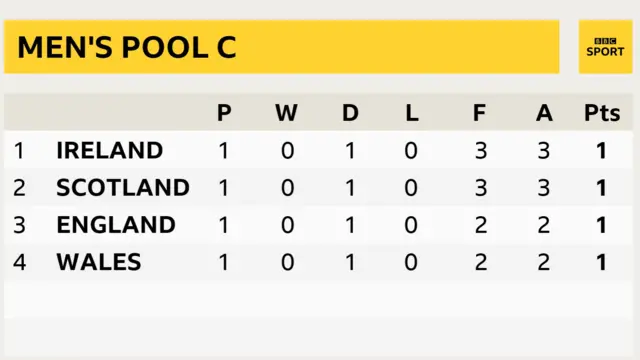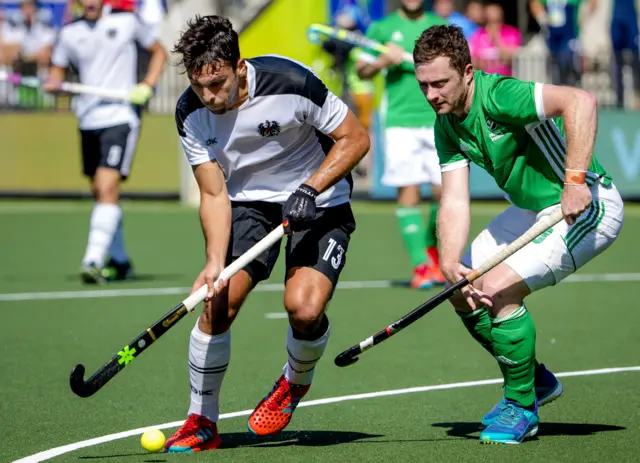The battle to avoid immediate relegationpublished at 18:53 BST 21 August 2019
Scotland and Wales both won promotion from EuroHockey Championships II in 2017 - but in the first top-tier campaign that either side have enjoyed for over a decade, they both find themselves on the brink of an immediate return.
Neither Scotland nor Wales won a group game, although both picked up creditable draws against Ireland and England respectively, and those results will be carried through to Pool C.
Their other games were less successful, however, with Scotland suffering heavy defeats to both Germany and the Netherlands while Wales went down to Spain and Belgium. Both sides will be looking for stronger performances in the relegation group in the hope that they can take another bite at the cherry in two years' time.
 Image source, BBC Sport
Image source, BBC Sport